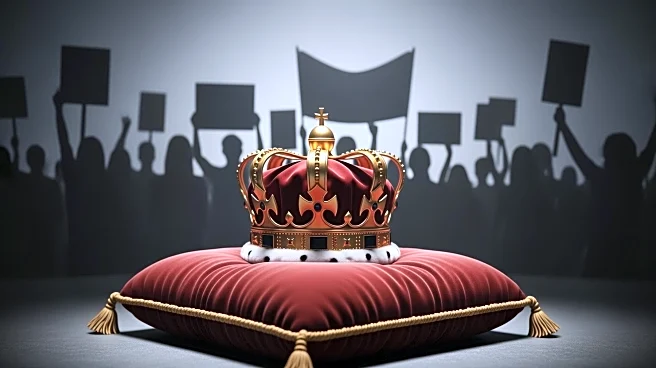What's Happening?
Protests are being organized across the United States under the banner of 'No Kings' to oppose what participants view as authoritarian policies of the Trump administration. The events are expected to draw
millions of participants at over 2,600 locations. Demonstrators are rallying against perceived threats to democracy and civil liberties, with many expressing concerns about the erosion of free speech and press freedoms. The protests are marked by the color yellow, symbolizing solidarity with global pro-democracy movements.
Why It's Important?
The 'No Kings' protests reflect significant public dissent against the Trump administration's policies, highlighting deep political divisions within the United States. These demonstrations underscore the ongoing debate over civil liberties and the role of government in safeguarding democratic principles. The scale of the protests suggests a substantial mobilization of grassroots activism, which could influence future political discourse and policy decisions. The events also illustrate the power of collective action in advocating for democratic values.
What's Next?
The protests may prompt responses from political leaders and could influence upcoming legislative agendas. The scale and impact of the demonstrations might lead to increased scrutiny of the Trump administration's policies and potentially galvanize further political activism. Observers will be watching to see if these events lead to tangible policy changes or shifts in public opinion.
Beyond the Headlines
The protests raise questions about the balance between national security and individual freedoms, a recurring theme in American political discourse. The emphasis on peaceful demonstration highlights the importance of nonviolent resistance in effecting social change. The events may also contribute to a broader dialogue about the role of citizen engagement in shaping government policy and protecting democratic institutions.










